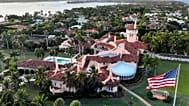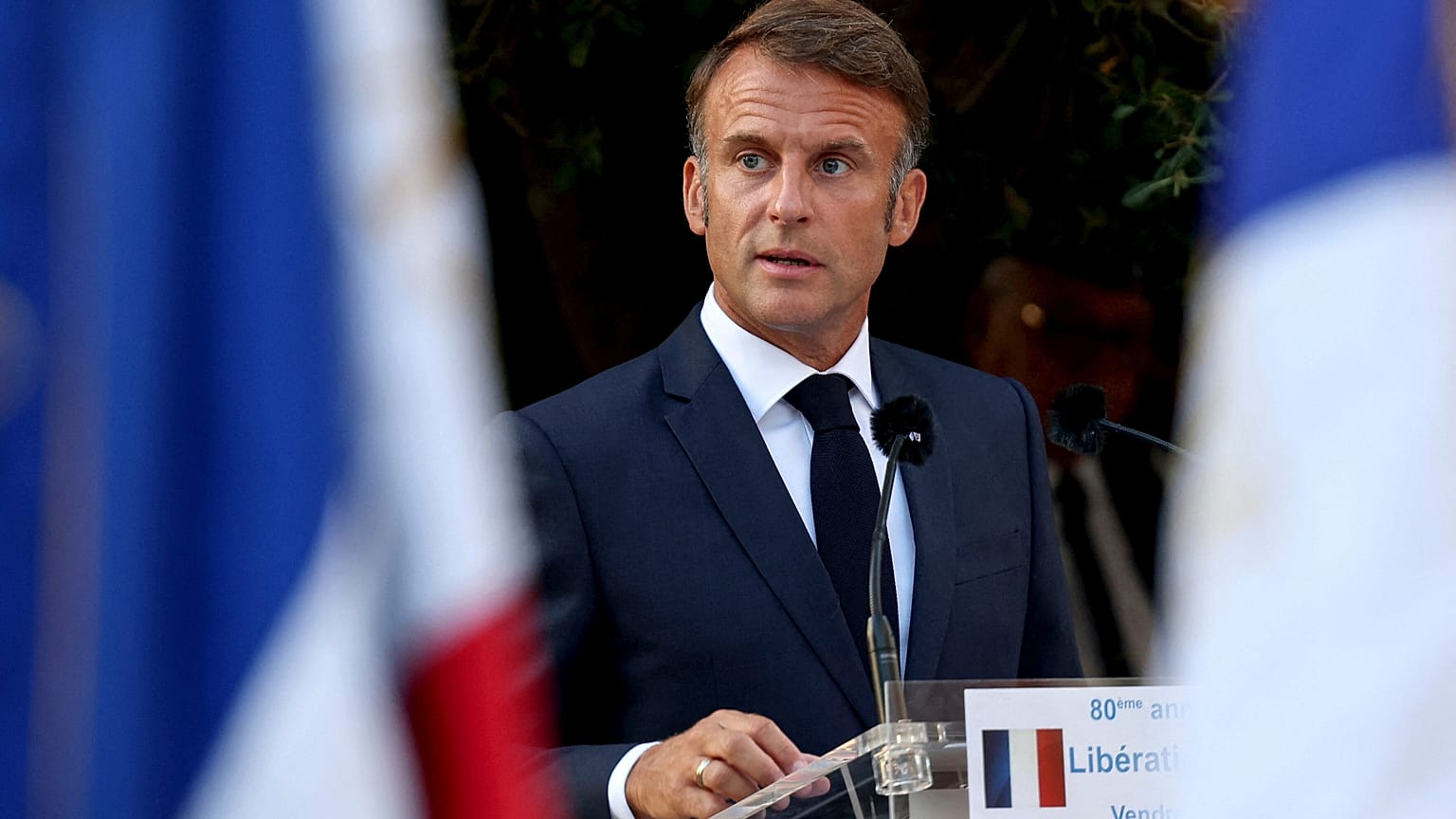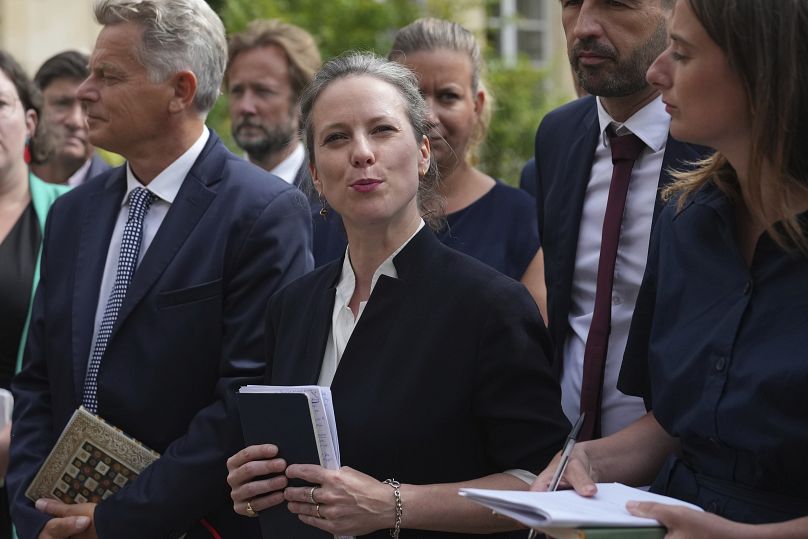While the talks were "fair, sincere, and useful," no practical solution was reached, said Macron. The government would probably fall apart upon the appointment of a left-wing prime minister, he said.
Political uncertainty in the French government reemerged on Monday after President Emmanuel Macron refused to name a prime minister from the left-wing coalition that won the most parliamentary seats in the snap election last month.
 ADVERTISEMENT
ADVERTISEMENT
 ADVERTISEMENT
ADVERTISEMENT
Macron will instead hold a new round of consultations on Tuesday to form a new government.
In a statement on Monday night, the president said that while the talks so far had been "fair, sincere, and useful", no practical solution had been reached, adding that the government would probably fall apart immediately upon the appointment of a prime minister from the left-wing New Popular Front (NFP).
The announcement immediately drew criticism from the NFP, which won the most seats in July's snap legislative elections but not enough to govern.
The alliance warned it would not join any more talks unless they were about forming a government.
"We are here to remind the President of the importance of respecting the results of the elections and getting the country out of the paralysis into which it is plunged," said Lucie Castets, the alliance's candidate for prime minister. "We have come to propose a solution for stability."
The left-wing NFP coalition is made up of France Unbowed, the Socialists, the Communists, and the Greens.
It has about a third of the seats in the National Assembly, France’s powerful lower house of parliament. Macron’s centrist alliance came in second in the summer election, and the far-right National Rally (RN) third.
Castets says she is ready to govern and willing to compromise to get things done, but far-right leaders who met with Macron on Monday said their party would block any prime ministerial candidate from the left-wing alliance.
"The New Popular Front, in its programme, in its movements, and in the personalities who embody it, today represents a danger to public order, to civil peace, and obviously to the economic life of the country," said RN President Jordan Bardella.
The parliamentary leader of RN, Marine Le Pen, called for the National Assembly to be convened before a prime minister is appointed.
The NFP said they would not take part in new consultations with Macron unless they discussed Castets' nomination, criticising Macron's "inaction" as “serious and dangerous”.
But Macron is not formally required to name a candidate from the party that won the most seats or lay out a timeline for a decision — and as president, he has sole power to name the prime minister.
Other names that have emerged in French media as potential prime minister candidates include centre-left politician Bernard Cazeneuve, who served as France’s top law enforcement official during a series of bloody terror attacks in 2015, and Xavier Bertrand, a former minister considered relatively moderate within the French right.
Conservative politician Michel Barnier, the EU's chief negotiator for post-Brexit talks, is also considered a potential candidate.















